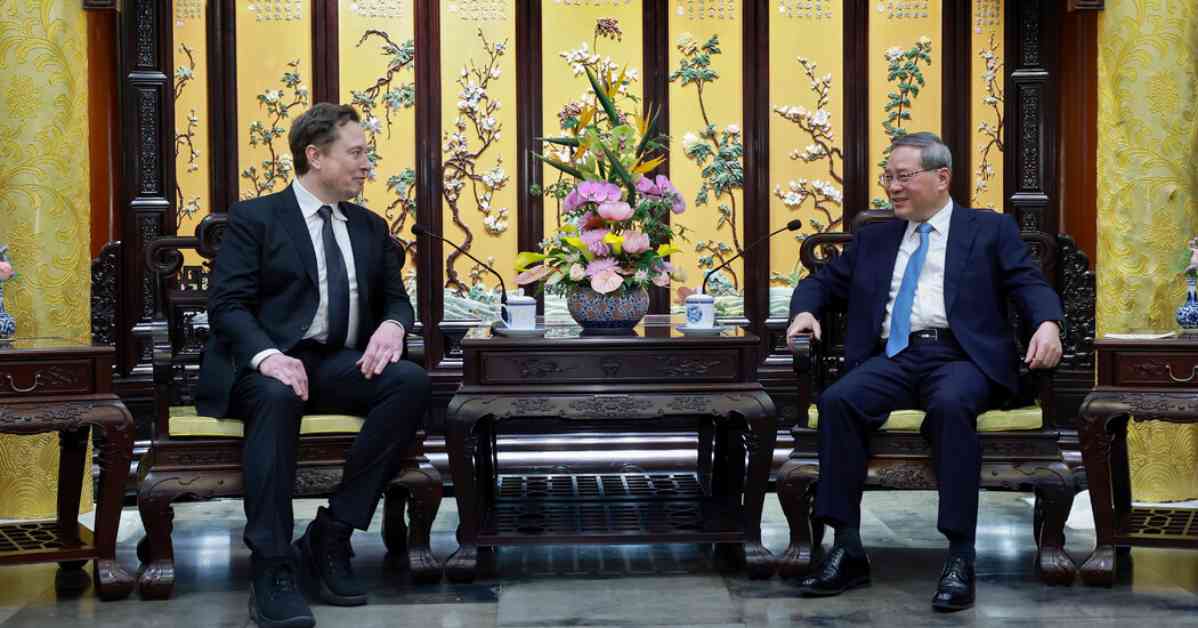Elon Musk, the well-known business leader behind companies like Tesla and SpaceX, has a significant presence in China’s market. With half of Tesla’s cars being manufactured in China and facing increasing competition from local companies, Musk has been seeking approval from Chinese regulators to introduce his company’s latest self-driving technology.
Tesla’s market share in China has been declining, and Musk has personally reached out to China’s premier for support. Some experts believe that Musk could potentially serve as a valuable intermediary between China and the United States, especially in the context of trade relations.
In addition to Tesla, Musk’s other ventures in solar energy and large batteries also face stiff competition from Chinese businesses. The ongoing trade tensions between the two countries, marked by tariffs imposed by both the Trump and Biden administrations, have impacted Chinese automakers’ attempts to enter the American market.
Musk’s relationship with China is complex, especially in light of his support for President-elect Donald J. Trump. As one of the few business leaders who openly endorsed Trump, Musk finds himself in a delicate position given Trump’s stance on imposing tariffs on Chinese goods.
Overall, Musk’s businesses in high-tech manufacturing sectors are directly impacted by the evolving dynamics between the US and China. The outcome of his interactions with Chinese regulators and officials could have far-reaching implications for his companies’ operations and future prospects in the region.

